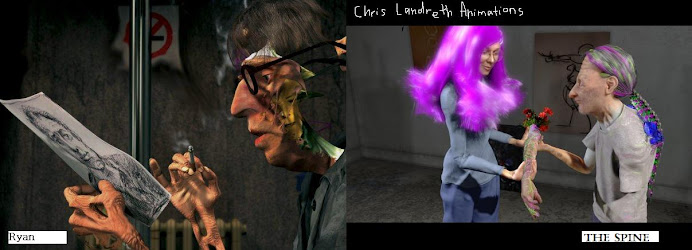I love the quality sound brings in its ability to enhance the
“...immediate remembered experience...” (pg 5, Chion reading)
Like synesthetes associate sounds to colours or waves, I feel it is a common association amongst people to relate sound to memories. Whether it be a simple set of beats that spark a forgotten memory, or a cherished past time that will forever remind you of a particular song, there is a definite relation. Also, as the reading includes in the latter, sound associations with culture such as the powerful pulse of drums relation to African tribal life. I have always had a general intrigue to how and why sound affects memory particularly; so the Chion reading was interesting and beneficial for me in that respect also. On the topic of synesthesia again, I want to acknowledge Stan Brakhage’s effect of excluding sound; which I would consider to also add value via technique of absence. Though we are aware Brakhage is encouraging personal sound to be provoked from the visual alone: I believe viewers (without knowledge o f his intention particularly), could also gain the awareness of sounds importance of effect on the visual (i.e. sounds absence generates realisation of the effect of no sound, to inspire inquisition to this topic, the value of sound).
“Sound in film is voco- and verbocentric, above all, because human beings in their habitual behaviour are as well”
I think this statement sums up the textual element of sound quite well. In my screenwriting class we were discussing precisely this idea. That in reality we are guided by vision in collaboration with sound. Therefore a common technique, to create a believable sense of surroundings for your audience, is to use sound to ‘set the scene’, before the visual is even shown. A simple example being use of the sound of steam train rolling in and exhaling it’s steam, creating the immediate assumption the scene is at a train station in a period somewhere between the late 1800’s and 1940’s (i.e. synchresis).
I didn’t know specifically that “the ear analyses, processes and synthesizes faster than the eye.” (pg. 10) This is interesting though, confirming my understanding of how fundamental sound is as a means (in reality and film) of heightening our awareness of our surroundings. The subtle messages of lyrics (as subtext) in a film may provide information regarding the way a character is feeling for example. We miss so much of the world as human beings due to our inability to be able to accept all information in our consciousness. The collaborative function of our senses informs us; our ability to see and hear being central components. This therefore must be considered in our expressions of reality, or inventions of believable normal world.
My background in television production in Australia is forever drilling the importance of sound into me. The producer and then visual director have the ultimate say, though often (particularly in live production) the Sound “super” aka director is often open to have a very independent direction of their own. So via my experiences I feel I have a decent understanding of how vital sound is. In an etude I had to direct for one of my studio prod subjects for example we had to create the story purely by visual and sound language (music and effects etc, no dialogue). The final project was greatly influenced by the Sound directors live choice of sound. He had been away for multiple rehearsals so had little knowledge of the story and especially not the back-story etc. It was interesting to observe in the end how much of a differing effect the original scripted sound had on the audiences perception of the story, to their interpretation from sound captured on the day.
Monday, February 22, 2010
Subscribe to:
Post Comments (Atom)


No comments:
Post a Comment